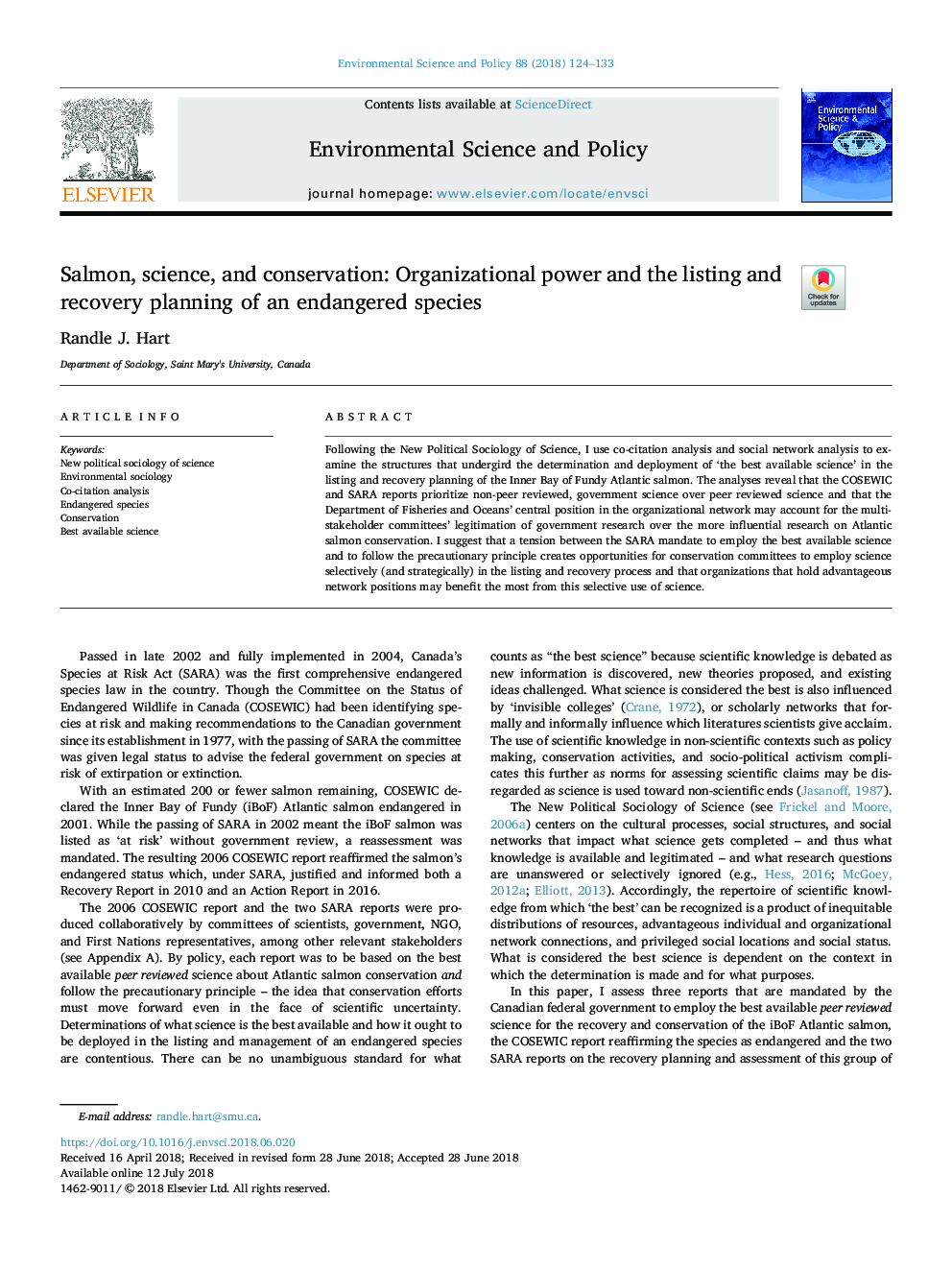| Article ID | Journal | Published Year | Pages | File Type |
|---|---|---|---|---|
| 7465772 | Environmental Science & Policy | 2018 | 10 Pages |
Abstract
Following the New Political Sociology of Science, I use co-citation analysis and social network analysis to examine the structures that undergird the determination and deployment of 'the best available science' in the listing and recovery planning of the Inner Bay of Fundy Atlantic salmon. The analyses reveal that the COSEWIC and SARA reports prioritize non-peer reviewed, government science over peer reviewed science and that the Department of Fisheries and Oceans' central position in the organizational network may account for the multi-stakeholder committees' legitimation of government research over the more influential research on Atlantic salmon conservation. I suggest that a tension between the SARA mandate to employ the best available science and to follow the precautionary principle creates opportunities for conservation committees to employ science selectively (and strategically) in the listing and recovery process and that organizations that hold advantageous network positions may benefit the most from this selective use of science.
Related Topics
Physical Sciences and Engineering
Energy
Renewable Energy, Sustainability and the Environment
Authors
Randle J. Hart,
